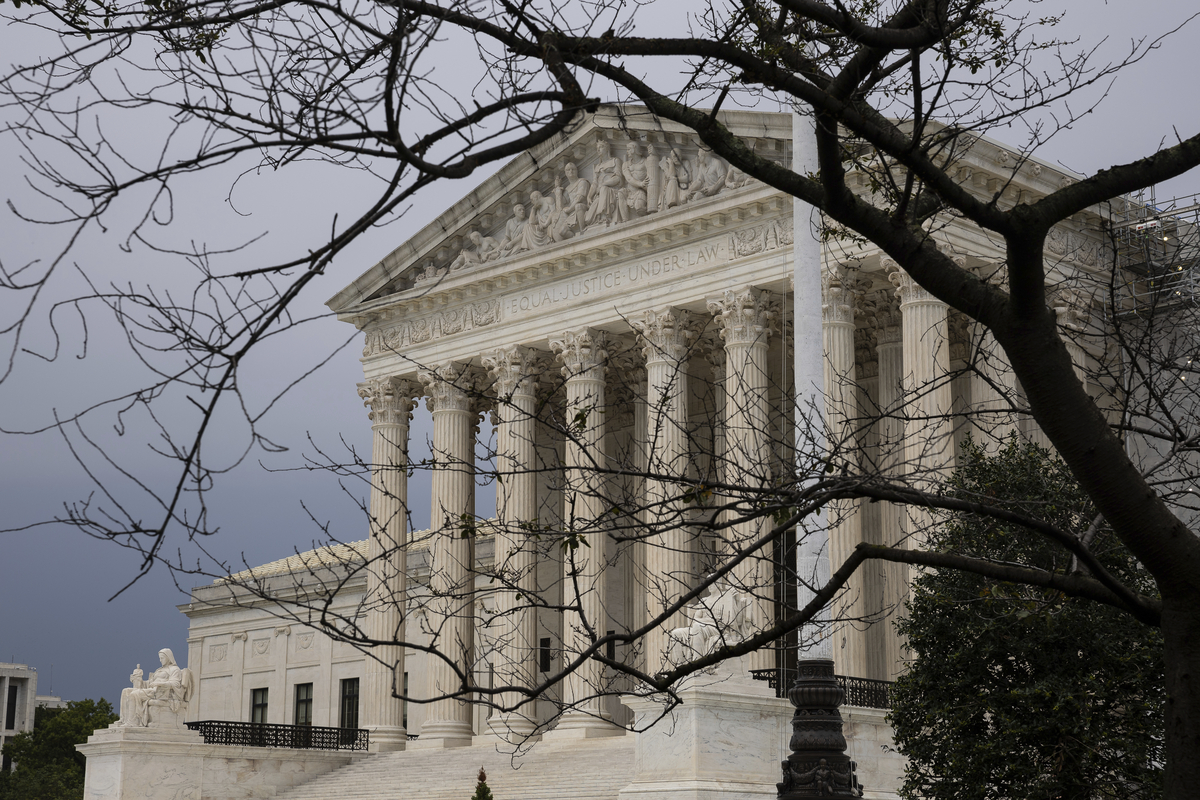As Donald Trump prepares to return to the White House, the nation’s highest bench is eyeing high-profile environmental questions that — once the conservative-dominated Supreme Court answers them — could boost the president-elect’s policy agenda.
Over the next six months, judges will have the opportunity to limit the environmental impacts that federal regulators can consider when approving projects, give the EPA the ability to get more specific about water permitting requirements, and curb Congress’ ability to delegate powers to the executive agency.
During a recent panel discussion hosted by the Environmental Law Institute, Holly Doremus, a law professor at the University of California, Berkeley, said, “The supermajority of the conservative Supreme Court is undermining executive power.”
While the majority of justices said they were working to build a more muscular Congress, the branch of government that is most directly responsive to voters, Doremus said the courts could benefit the most from the shift.
“It is going backwards in favor of increasing judicial power,” he said.
The transition — cemented last year by a rule that weakened the ability of agencies like the EPA to defend and enforce their rules — is expected to be largely favorable to the Trump administration, which wants to cut back on federal regulators.
But cutbacks in executive power could also have some downsides for the Trump team Efforts to eliminate rules don’t like it
The biggest environmental battles the Supreme Court is expected to take up in the coming months and years are still making their way through the lower benches, including lawsuits to block the EPA’s latest effort. Carbon emissions from power plants and White House authority Set out the National Environmental Policy Act.
Still others have pending petitions that judges may add to their calendars in the very near future. However, the Supreme Court on Monday rejected fossil fuel companies’ latest fight over whether local governments can sue in state courts Holding the oil industry fiscally accountable As for climate impacts, the issue is expected to come before the justices again.
“The public needs to understand that these are not primarily about climate change,” said Donald Kochan, a law professor at George Mason University. “They are about the separation of powers and the proper division of authority between the federal and state governments.”
Here are some of the key environmental issues on the Supreme Court’s docket between now and early summer:
Rein in NEPA
Within the next six months, judges will have the opportunity to limit the scope of environmental reviews for federally approved projects such as pipelines and highways.
the time Oral arguments in a Dec. caseMost members of the court appeared unimpressed by Utah Oil Railway’s supporters that they could force regulators to exclude from their NEPA analysis impacts that are remote from projects and that do not fall within the direct purview of the approving agency.
Depending on the outcome and breadth of the ruling, the court’s decision could hamper federal agencies’ ability to consider the cumulative climate impacts of the projects they approve.
Changing the rule making rules
In a series of cases that do not directly address environmental issues, the Supreme Court will have the opportunity to rewrite the rules for how federal agencies make regulations.
Judges have granted a pair of lawsuits that have potential Revive the non-delegation doctrineA legal theory that the high court hasn’t used since 1935 and that prevents Congress from handing too much power to executive agencies like the EPA. The court, however, gave itself an off-ramp to decide the case without addressing the non-delegation issue.
Last December, in a case of arguments, the court appeared divided Disputes over Administrative Procedure Act About the Biden administration’s ban on flavored vaping products. Courts can use the APA to reverse environmental policy decisions made by federal agencies.
Permissions question
The Supreme Court will soon rule on the agency’s power to set water permit requirements and license temporary nuclear waste storage sites.
The justices will decide whether the case will be argued in October EPA needs to get more specific About how permit holders must comply with federal Clean Water Act standards. The challenge to the agency comes from ultra-liberal San Francisco, which has received support from some unlikely allies, including fossil fuel industry groups.
On March 5, the court will hear arguments on whether the Biden administration properly licensed a private company. Store nuclear waste in Texas’ Permian Basin.
Who has the power to sue?
Industry groups and Republican-led states said the term gave the Supreme Court a chance to weigh in on the EPA’s longstanding authorization for California to set stronger tailpipe emissions rules than the federal government.
The justices mostly granted the opportunity — but said they would decide whether fossil fuel interests and other business entities have standing. File a lawsuit against California’s Clean Air Act waiver. They are yet to schedule arguments in the case.
Standing – or who has standing to bring suit – is a major issue in environmental litigation. If courts take a narrow view of standing, they may effectively stop environmental cases before they even begin.
The Trump Factor
Aside from possible emergency orders, the Supreme Court will likely spend the remainder of its current term focusing on policy issues that pre-date the incoming Trump administration.
But the arrival of the president-elect in the White House could at least affect one policy battle Regional circuit courts have a role In deciding certain Clean Air Act cases. Red states and industry groups want to fight their air and biofuels battles against the EPA in regional courts that may be more sympathetic to their claims.
The Biden administration has taken an opposing view, arguing that the cases belong to a federal appeals court in Washington that defers to the EPA. Although the Supreme Court has granted the cases, it has not yet scheduled arguments, and it is possible that the Trump administration could reverse some EPA decisions under litigation.
Reporter Leslie Clark contributed.
